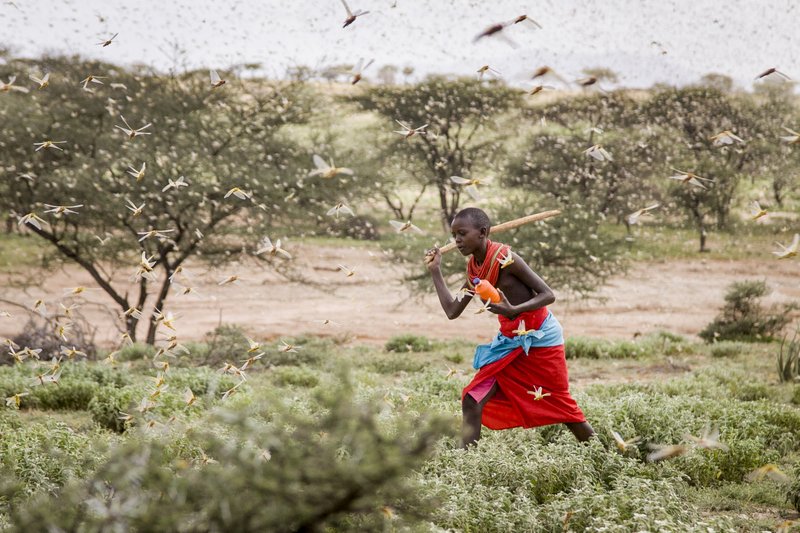Self Help Africa has teamed up with the United Nations and government agencies in three of our African programme countries, in a bid to halt a devastating desert locust invasion that is threatening the food crops of millions of rural poor households.
Resources have been deployed in Ethiopia, Uganda and Kenya, as locust swarms, carried by prevailing winds, wipe out crops, animal grazing and vast tracts of vegetation that lie in their wake.
Self Help Africa’s Humanitarian Director Steve Langdon describes scenes of ‘utter devastation’ on farmlands in Ethiopia and Kenya, and said that “the region as a whole is facing a looming food crisis if the locust swarms are not eradicated” Self Help Africa is currently supporting the United Nations Food and Agriculture Organisation (FAO) and government ministries in the three countries, lending resources to centralised efforts to combat the locust plague.
“Right now, we are in a race to put into place effective responses that are at scale to wipe out the invading locusts before they multiply, which will happen rapidly in the current climatic conditions, where warmth and seasonal rains trigger a new breeding season,” Steve Langdon said.
Self Help Africa’s activities are currently targeted on regions where the organisation is working – across Ethiopia’s vast Southern Nations Province, at Karamojo in the north-west of Uganda, and at Baringo in Kenya’s upper Rift Valley.
Self Help Africa CEO Ray Jordan writes on the current locust invasion in The Irish Times.
[Photo above by Al Jazeera]
